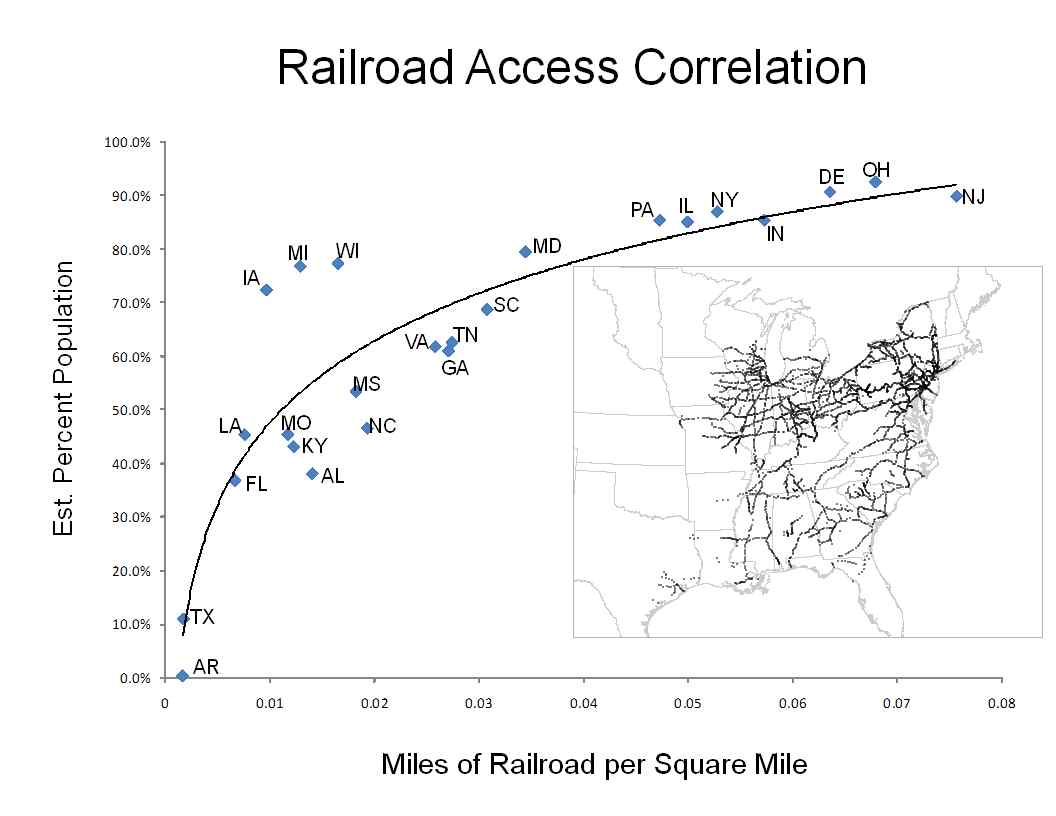The industrial North wanted to keep the South agricultural and poor - and they succeeded."
First of all, claiming "economics" caused secession is like calling slavery a "peculiar institution".
Regardless of what you call it -- "economics" or "peculiar institution" it's still the same thing: slavery.
Sherman Logan post #22: "In 1860 white southerners were on average considerably better off than white northerners.
If I remember correctly, the per capita income was about 2x than of the North."
"spaced", "Phosgood" and others here are suffering long term effects from generations of Neo-Confederate historical revisionist propaganda.
So in their minds they reverse the actual pre-war economic and political situation.
Second, in actual fact, the South had dominated economically and politically since the founding of the Republic.
So in 1860 it was Southern dominance at stake, not some phantasm of alleged Northern "oppression".
For generations, Southern gentlemen had dominated their slaves, and dominated the American Republic, and they well understood that such dominance is maintained only through forceful actions.
Most of my data here comes from James Huston's 2002 book: "Calculating the Value of Union".
In 1860, Northern white per-capita income averaged around $140, in the South around $150.
In the South and North Great Lakes, farmers averaged around 50% of white males, but only 30% in New England and Middle Atlantic states.
Here similarities end.
In a nation with white per-capita annual income of $150, South Carolina's per-capita wealth was nearly $1,900 -- compared to about $500 in New York, Pennsylvania and Ohio.
Mississippi and Louisiana were comparable to South Carolina, while Georgia, Alabama and Florida averaged around $1,000 per-capita.
Even the poorer Southern states like Arkansas, Tennessee and North Carolina, were all as wealthy per-capita as, say, New Jersey, Massachusetts and Illinois.
Yes, it's true, no Southern state was the industrial powerhouse of Northern states like Pennsylvania, Massachusetts and New York, but Southern states like Virginia, Georgia, Maryland and Kentucky all had as many factory workers in 1860 as northern states like Illinois, Indiana and Michigan.
The South's wealth came foremost from slaves, then valued at $3 billion, equal to the value of Southern land itself, and more than double the value of Northern manufacturing and railroads combined.
Considered "economically", slaves were more profitable than any other investment you could think of, especially since they could be hired out to work in factories, on railroads, etc.
And that is precisely the reason Northern "free labor" hated slavery.
Three billion dollars in 1860 was about 20% of all US wealth, equivalent in today's economy to around $10 trillion.
So, for the slave-holders who dominated the South, "economics" meant "our peculiar institution", which meant: slavery.
Point is: one reason Southerners didn't develop as much manufacturing, is because agriculture was the tried and proved method for becoming wealthy.
Finally, it's often pointed out, the South had fewer than half the railroad miles of the North, and these were neither standardized nor interconnected for interstate commerce or strategic military purposes.
True enough, but Southern railroads were intended to move goods and people to their market-places and so more Southerners had access to nearby rail service than their supposedly more advanced Northern cousins.
So my point again is: before 1860, the South dominated the nation economically and politically.
It was this domination (not some sort of "oppression") which was first seriously threatened by Lincoln's election in November 1860, leading South Carolina slave-holders to begin the process of declaring secession, forming a Confederacy then starting and formally declaring war on the United States, May 6, 1861.

